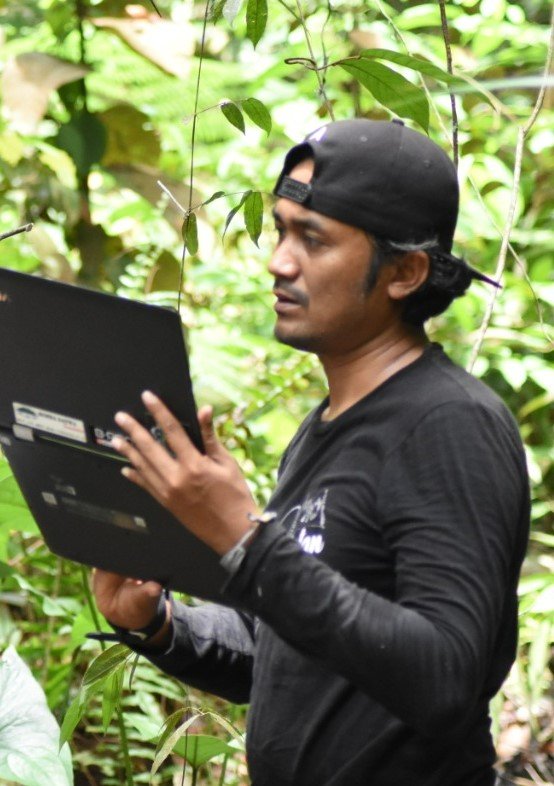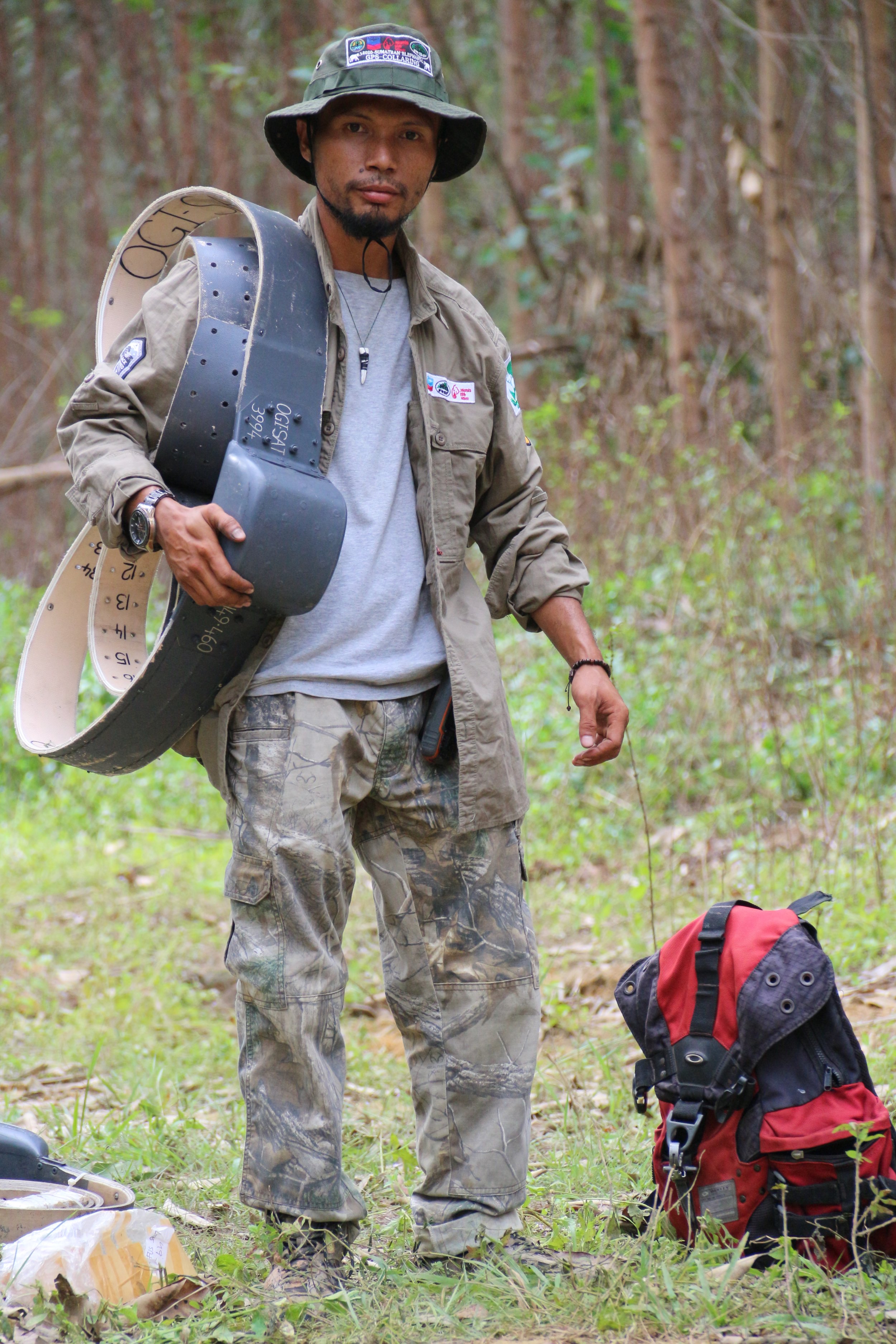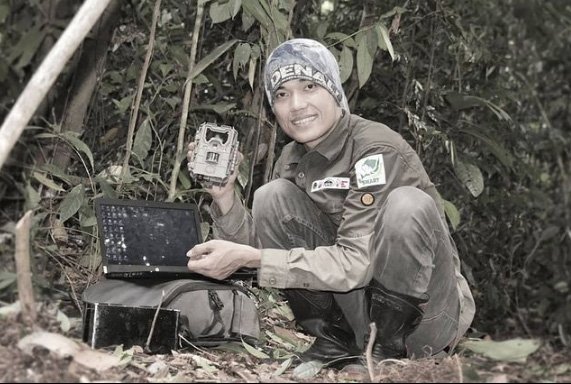
Surian Nagari Forest
Surian Nagari Forest is a 3,470-hectare highland tropical rainforest rich in biodiversity which provides habitat for Sumatran tigers, flat-headed cats, bears, and many species of birds. Surian Nagari Forest also provides a protective buffer zone for Kerinci Seblat National Park, Sumatra’s largest National Park.
The Surian community refer to their tigers as ‘inyiak’ in the local dialect, meaning “the elders”. The community respect the tiger as a guardian of both the forest and their communities, and as a direct ancestor. The species has been a source of inspiration for local tales, traditional dance and pencak silat (a traditional martial art).
The community view the forest as an important source of life. They call the forest ‘tanah ulayat’, or customary land, meaning it is ancestrally theirs and denoting their immense pride for the area. The forest also represents an important source of livelihoods. For example, they collect non-timber forest products (NTFPs) such as honey and rattan from the vegetation and fish from the river.
The community now wants to develop a Management Plan for Surian Forest to ensure forest products are not over harvested or exploited, and to protect the wider ecosystem and tiger habitat.
They need funding to formalise and implement this plan and manage the forest for conservation.
Grantee Team
This area is owned by the Indonesian government, and managed by Surian Nagari Forest Management (LPHN) a Community-Based Organisation. In 2018 LPHN got the rights to manage the forest for 35 years. Since 2020, LPHN has been supported by Rimba Satwa Foundation (RSF) in its forest protection and monitoring activities. RSF is a non-profit organization specializing in conservation and managing human-wildlife conflict, and is the FCF Grantee.
The social forestry license of Surian Forest was obtained with the assistance of Warsi, a local Indonesian NGO focusing on community and indigenous rights. In the process to get the license, Warsi and LPHN Surian (which consists of the community heads and community representatives) conducted socialization with communities in six ‘jorong’ (sub-villages), to consolidate community aspirations and secure their consent.
Biodiversity and Conservation Values
Surian Nagari forest is home to a number of endangered species such as the Malay Tapir (Tapirus Indicus), Sunda Pangolin (Manis javanica), Agile Gibbon (Hylobates agilis), Siamang (Symphalangus syndactylus) and the Sumatran Slow Loris (Nycticebus hilleri).
Vulnerable species that make the area home include the Clouded Leopard (Neofelis diardi), Red Langur (Presbytis rubicunda) and Sun Bear (Helarctos malayanus).
For the Surian community, the forest has an important meaning for life and is a great source of pride. Their Surian Forest Management Plan maps out sustainable harvesting of non-timber forest products such as honey, rattan and fish from the river. They believe that the forest can provide them with livelihoods whilst protecting important habitat.
As a buffer forest to Kerinci Seblat National Park - home to the endangered Sumatran tiger - the Surian Nagari forest is also frequented by tigers. The Kerinci Seblat forests, including Surian Nagari, have just 42 breeding female tigers left, but it is one of the species’ last two remaining strongholds (the other being the Leuser Ecosystem in the north). Without the national park and buffer forests like Surian Nagari to provide habitat and protect tigers from poaching, this species will certainly go extinct.
Threats
Deforestation and habitat loss due to palm oil and artisanal mining expansion
Tiger poaching (as one of two remaining Sumatran tiger strongholds, the area attracts a lot of poaching attention)
Poaching of other species (including use of indiscriminate snares)
Human-wildlife conflict
Project Activities
SMART monitoring and patrols
RSF, the Grantee, will use FCF funding to support the Surian community to mark the boundaries of their forest and to implement a local ranger and patrol programme. They will develop a SMART system for rangers to use to monitor wildlife and track threats over time, and install a system of camera traps to survey wildlife. FCF funds will also be used to construct a forest monitoring lodge for rangers to use as a base for patrols.
Conservation education AND GOVERNMENT ENGAGEMENT
Providing environmental and animal protection education and information, with material that is easy to understand by generations of students and young people is a very important activity to be carried out in nearby villages. RSF has carried out this environmental education activity in 12 elementary schools in Riau, attended by 480 children aged 8-12 years and 48 teachers, and aims to implement a similar programme around the Surian Nagari Forest. RSF will also support the Surian community in its engagement with the West Sumatran government, to raise the profile of the community and secure its position as the guardian of this important forest.
SECURING FOREST-FRIENDLY LIVELIHOODS
Collecting wild products from the forest is an important source of livelihoods for the Surian community, and it is important to them that these resources are managed sustainably. The Surian community will develop a management plan for the forest that ensures that forest health is maintained and can continue to provide for them other the long term, integrating data from the SMART monitoring system. RSF also hopes to implement organic coffee cultivation through agroforestry in degraded areas buffering the forest, to diversify income for the Surian community.
FOREST RESTORATION AND TREE-PLANTING
Although Surian Nagari Forest is primary rainforest which has never been logged, there are some small areas which are degraded. These will be planted with local species to maintain forest cover and extend the habitat for the tiger and other fauna species.
Quick Stats
Area: 3,470 hectares
Threatened Wildlife: Sumatran tiger, Agile gibbon, Tapir, Sunda pangolin and Siamang
Grantee: Rimba Satwa
Funding status: This project is fully funded by GE Vernova.
Commodities: Palm oil, Coffee, Mining, Timber





